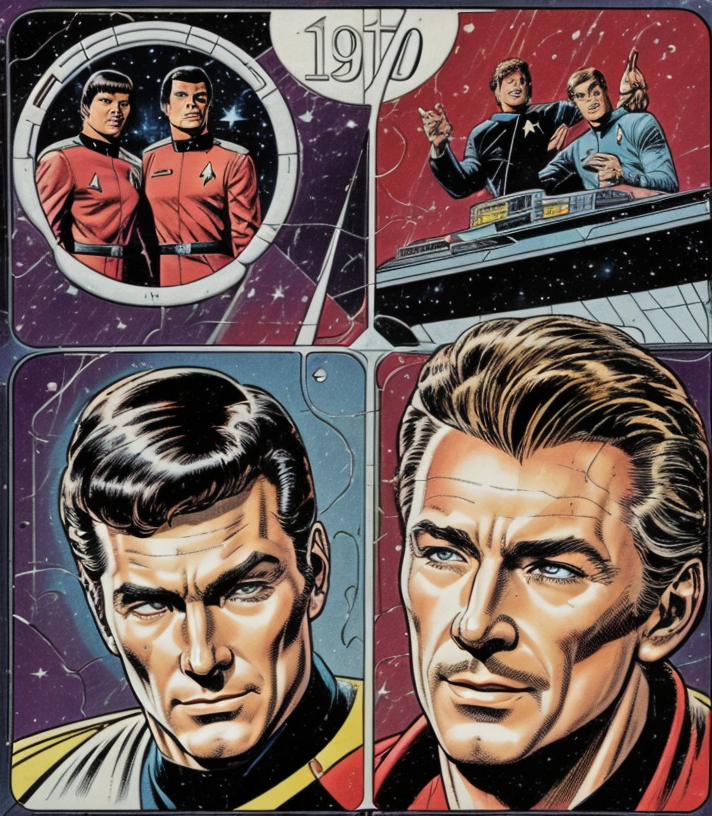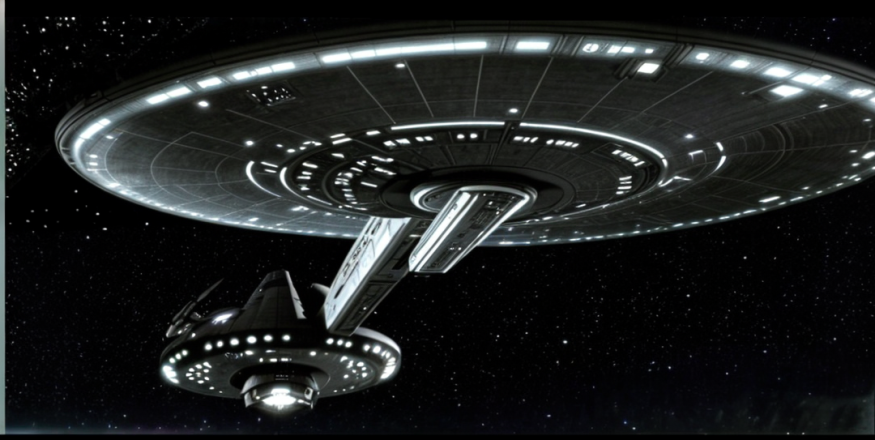 x
x
We had not made landfall in more than fourteen years. One catastrophic choice of star after another. The Captain viewed this string of failures as absurdly bad luck; the bishop, as divine intervention. Either way, I saw it as prelude to the captain's downfall, which was almost surely mean my own downfall as well.
I was exploring one of the dark, abandoned vaults of disabled machinery deep in the ship's core, studying a length of cable scorched and fused at one end, neatly severed at the other. Shiny blackened metal sparkled in the light of my hand torch. The air was warm and stuffy and smelled faintly of burnt plastic and old lubricants. There were dozens of such rooms on the Enterprise, some quite small, others like this one---large vaulted chambers that had become dumping grounds for machinery that had ceased to function and which could no longer be repaired or salvaged. I loved those rooms and spent endless hours in them, hoping to find some engine or device I could rebuild and bring back to life.940Please respect copyright.PENANA10gGfaZ8vP
I swung the hand torch around, widened the beam, and aimed it upward. Great, massive chains hung from the ceiling far above, shiny silver-blue stars of reflection glittering down at me as if the metal were wet and dripping. Entwined in one of them was a longer section of cable much like the one I held in my hand; it, took, appeared to be severed, near the point wher it emerged from the bottom link. I was mystified.
A winged creature of some kind flapped through the beam, an amorphous shadow that seemed to flicker in and out of existence as it flew. It swerved abruptly and dove. Its eyes gleamed at me for a moment; then the creature canted away and out of the light with a hushed flutter of air.
A horrible grinding sound vibrated through the chamber and I instinctively snapped off my hand torch. The grinding slowly faded, but was followed by scraping noises and the clanging of metal against metal. I stood motionless, listening, waiting for my eyes to adjust to the darkness. Dull red glowed in the distanced, a glow that seemed to gradually brighten.
The scraping and clanging ceased, replaced by a low, deep rumble. Then I heard a voice. Too faint and distant to make out, yet familiar.
I wanted to get closer, but trying to move blindly through all that broken and rusted machinery would be dangerous as well as noisy. I adjusted the hand torch to its lowest setting, aimed it down at the floor, and turned it back on. There was just enough light to see my footing; I decided the risk of detection was low, and so I moved forward.
Progress was slow: the way was rarely clear. I was trying my damndest to be quiet, and my club foot was a minor hindrance. As I got closer, I felt even warmer; sweat trickled down my sides, itching. Sometimes I heard the voice, sometimes I heard more scraping or banging, sometimes grunting. The red glow intensified as I neared it, and soon it was bright enough to light my way.
A horrendous metallic squealing tore at my eardrums and brought me to a stop. I ceased abruptly, and I was just about to take another step when I heard the voice again; this time I recognized it: Bishop Worf. His deep, resonant baritone was unmistakable, though I still could not make out any words. Who was he talking to? Himself?
My exoskeleton vibrated twice in succession, and I silently cursed it. It was a signal from the captain. I felt a nagging irritation, more at myself than at Picard; the signaling system had been my idea, and this wasn't the first time I'd regretted it and crept forward, pulled myself across a tangle of wire mesh between two huge rusting cylinders, then through a corroded structure of bent and twisted metal rods.
I was seven or eight meters above the floor of a large, hollowed-out bay. Below me were the bishop, three shirtless men, and two enormous pieces of machinery that dwarfed the men beside them. One machine was dark and lifeless, resting on a crude, wheeled platform. The other shook and rumbled and glowed a deep red from rings of crimson-tinted lights circling the upper cylindrical section; pipe and cable snaked up from the floor, feeding into the base, and heat radiated from it in waves. The three men strained at the platform, pushing it closer and struggling to align the massive couplings of the two machines.
The bishop watched, frowning and quiet now. In the red glow, his large, shaved head glistened with beads of sweat. He was a big man, nearly two full meters in height and a hundred and twenty-five kilos or more in weight. He wore a plain black cassock and heavy black boots.
The wheeled platform stopped moving, less than a meter from the rumbling engine, and the three men fell back, exhausted. They were drenched in sweat and breathing heavily. The bishop stepped forward, and I thought he was going to shout at them, but he only nodded.
"Good," he said. "Once more, men. Once more and we'll be there."
The three men looked up at him, then rose together and leaned into the platform, grunting and straining again. The platform barely moved, the wheels turning almost imperceptibly, scraping the floor; then it lurched forward, and the two machines united with a loud and satisfying crash.940Please respect copyright.PENANAfRtKQorYaX
The bishop smiled; when he did, the three men smiled with him, and the expression on their faces was one of admiration----and worship. The bishop stepped forward, attached cables and plugs, worked some levers and wheels; then the second machine came to life.
Everything about the machines changed now. The rumble quieted, overcome by a steady thrum, an electric vibration that seemed to penetrate muscle, even bone. The bishop's smile broadened, and he gazed at the great engines as he might upon his congregation, his skin glowing and his eyes shining. He put his hand on the shoulder of the nearest man and nodded.940Please respect copyright.PENANA12VtFiQWde
"Good work, men. Good work."
The bishop watched for another minute or two, as if lost in a trance. Then he nodded to himself, still smiling, and shut down both machines, bringing silence and darkness to the chamber.
A few moment later a lantern came to life. Stark shadows fluttered all around them, and I pulled back farther within the metal cage.940Please respect copyright.PENANADW9vVVTOk2
"Let us go," the bishop said. "A good day's work, and we will have many more. Our day is coming."
The man with the lantern led the way, the bishop followed, and the two other men came last, walking side by side. They walked up a wide, gently sloping ramp, then out through a large opening in the chamber walls and into a broad corridor. Long after I lost sight of them, I could see the gradually fading light moving up and down, side to side.
The bishop was building a machine. It was not the first, and probably not the last---if anything, the bishop was more fascinated with these old devices and engines than I was. I switched on the hand torch and cast its full beam on the lifeless metal below me. What was it? I had no idea, but with the bishop involved I felt distinctly uncomfortable, even afraid.
The exoskeleton vibrated once again. I'd been able to ignore it all this time, but I couldn't anymore. Whatever the captain wanted me for, it had to be important. I turned away from the bishop's machine, and made my way back.
ns18.222.135.39da2





















